
Hydraulic classification plays an important role in the mineral processing process. The mineral processing process is the process of extracting useful minerals from raw ores, and hydraulic classification is one of the commonly used physical separation methods. It separates the granular materials in the raw ore according to their size, density and other characteristics by utilizing the flow of water and the different settling speeds of the granular materials. Depending on the medium used, there are two types: hydraulic classification and wind classification. The classification principles are the same. This article mainly introduces you to the hydraulic classification process and commonly used equipment to help you better understand hydraulic classifing process.
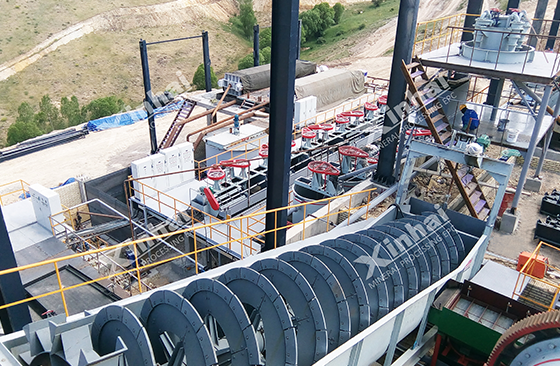
Although hydraulic classification and screening have the same properties, they are very different in terms of working principles, product characteristics, work efficiency and application scope.
The screening is strictly based on particle size classification, and the particle sizes of products of the same grade are relatively uniform. Screening is not suitable for processing fine-grained materials and is suitable for materials with a particle size larger than 2-3mm.
Hydraulic classification is mainly classified according to the sedimentation speed of mineral particles. The shape, density and sedimentation conditions of mineral particles will affect its classification effect. It can be used to process fine-grained materials. The particle size of the materials is generally not less than 2-3mm.
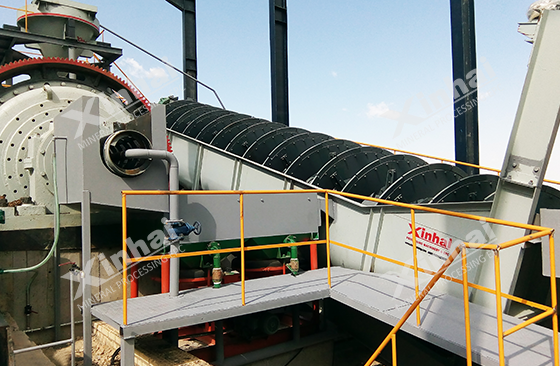
Grinding operations are commonly used in classification operations to form a closed circuit to timely sort products of qualified grade to avoid over-grinding problems. This closed circuit can also be used as a preparatory operation before the re-selection process. After the raw materials are classified, they enter different equipment or are sorted under different operating conditions. Hydraulic classification can also deslim or dehydrate raw ore or mineral processing products. In the laboratory, hydraulic classification can also be used to determine the particle size composition of fine materials.
Although there are many types of hydraulic classification equipment, they all use the different sedimentation speeds of mineral particles in the water medium to complete the classification of mineral particles in the gravity field or centrifugal force field. In addition to being used in the mineral processing process, hydraulic classifiers are also widely used in building materials, chemicals, food and other industries. Hydraulic classification is used in metal concentrators to classify selected raw materials to obtain qualified materials, which are fed into gravity separation equipment for classification ore dressing, or used for raw ore preparation before gravity separation. Common hydraulic classification equipment in the mineral processing industry is mainly divided into two types: mechanical classifier and hydrocyclone.
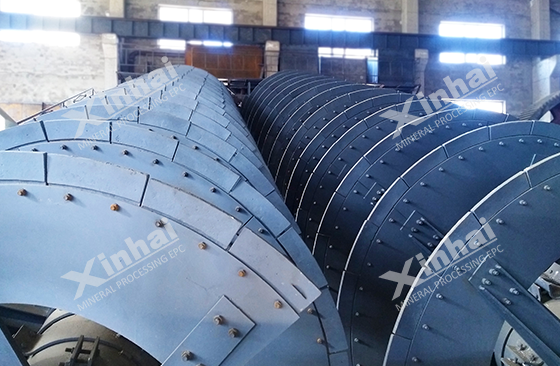
1. Mechanical classifier
Mechanical classifier is a device among many hydraulic classifiers that has a mechanism for lifting and transporting sand. Its working principle is also based on the difference in sedimentation velocity of particles in the water medium for classification. Mechanical classifiers work together with grinding machines for pre-grading and inspection grading. The classifier can also be used for washing mud-containing ores and desliming and dehydrating them.
Mechanical classifiers can be divided into three types according to different transportation sand settling mechanisms: spiral classifiers, rake classifiers and floating tank classifiers. Among them, the spiral classifier uses a rotating spiral to realize the continuous discharge of settled sand. Compared with the latter two classifiers, it has the advantages of simple structure, convenient operation, and large inclination angle of the classification tank. The spiral classifier can be connected with the grinding equipment for gravity flow, so it is widely used in mineral processing practice.
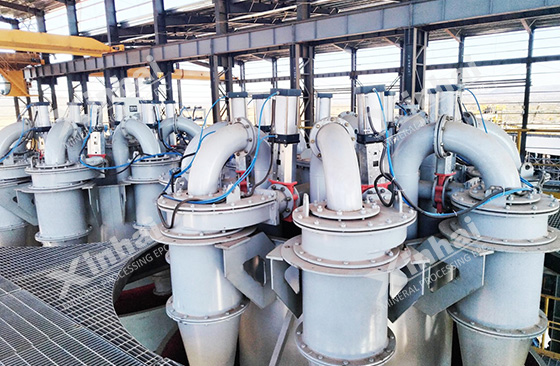
2. Hydrocyclone
Hydrocyclones use rotating flow for classification and can be used in processes such as concentrate concentration, desliming and sorting. Hydrocyclones are widely used in mineral processing practice because of their advantages of simple structure, easy manufacturing, large processing capacity, and good separation effect. The ore feeding methods of the cyclone are mainly divided into two modes: pressure stabilizing box feeding and sand pump direct feeding.
Stabilizing box feeding: Use the height difference to automatically flow the slurry in the pipeline into the cyclone, or use a sand pump to lift the slurry to a high voltage stabilizing box and then introduce it into the cyclone. The method of using height difference also limits this feeding method and can only be used under low-pressure feeding conditions.
Direct sand pump feeding: This feeding method has the advantages of convenient configuration, few pipelines, and easy maintenance, so it is widely used.
When the hydrocyclone is working, in addition to the structural parameters, operating conditions and ore properties that will affect the classification effect, its own structure will also affect it, such as the diameter of the cyclone, the diameter of the ore feed port and the diameter of the overflow port.
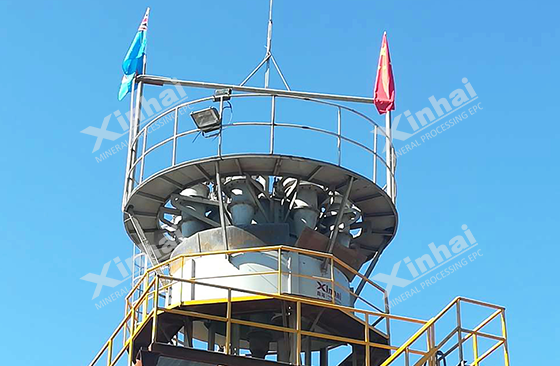
The above content is the difference between hydraulic classification and screening, the application of hydraulic classification in the mineral processing process and commonly used hydraulic classification equipment. In order to improve the separation effect and economic benefits, the appropriate hydraulic classification process can be selected through mineral processing tests, process tests and engineering experience. With the continuous development and progress of technology, new hydraulic classification equipment and processes are constantly emerging. Xinhai Mining recommends using new technologies to improve and optimize the mineral processing process.
To find out more about our products and solutions, please fill out the form below and one of our experts will get back to you shortly.